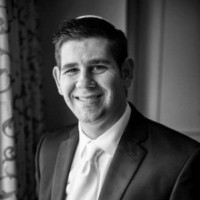
Rabbi Jeremy Pappas’ Reflection
I vividly remember my first summer as a Rosh Edah and the initial nightmare of nikuy shtachim. The typical pick-up-garbage routine wasn’t working for our edah, so I decided to change it up a bit, modeling it off of something one of my former counselors used to do. I lined everyone in the edah up in a line, then gave them military orders: “Our task is simple – we have 2 minutes and 30 seconds to make every piece of garbage on this migrash disappear. Everyone at camp is depending on us. Lay it all on the line and don’t hold anything back. Failure is not an option. Go.”
The counselor came over to me and said, “Pap, you realize that all of these kids just spent the past five minutes picking up trash because we pretended to be military commanders. I can’t even get my kids to get out of bed, and I ask them nicely!” The scene was quite hilarious: 75 fifteen year olds running all around the migrash doing somersaults, picking up garbage, screaming. Five minutes later, not a piece of garbage was to be found.
The point of this story is not that our tzevet got them to pick up the garbage – really, it has nothing to do with garbage at all. But, what we did accomplish was providing a space for everyone in the edah to feel like they were part of something. We made them believe that there was a real cause we were after. Nikuy shtachim moved from a mandatory chore, something they were told to do, to a communal obligation that can be fun, and that does have benefit. I share this story—from my very first week as a Rosh Edah—not because I am passionate about garbage (although, I do love a clean camp!). I share this story because it reminds me about how powerful a community can be when they work together. In my professional life today, working daily to advance the cause of Israel activism in the United States, I rely on the countless lessons I learned at camp. It’s for that reason that I think about my first summer as a Rosh Edah. It’s the lessons from that summer that guide me today. Knowing just how valuable it is to create a structure where everyone believes in what they are doing and everyone feels like they have a part in the process.
